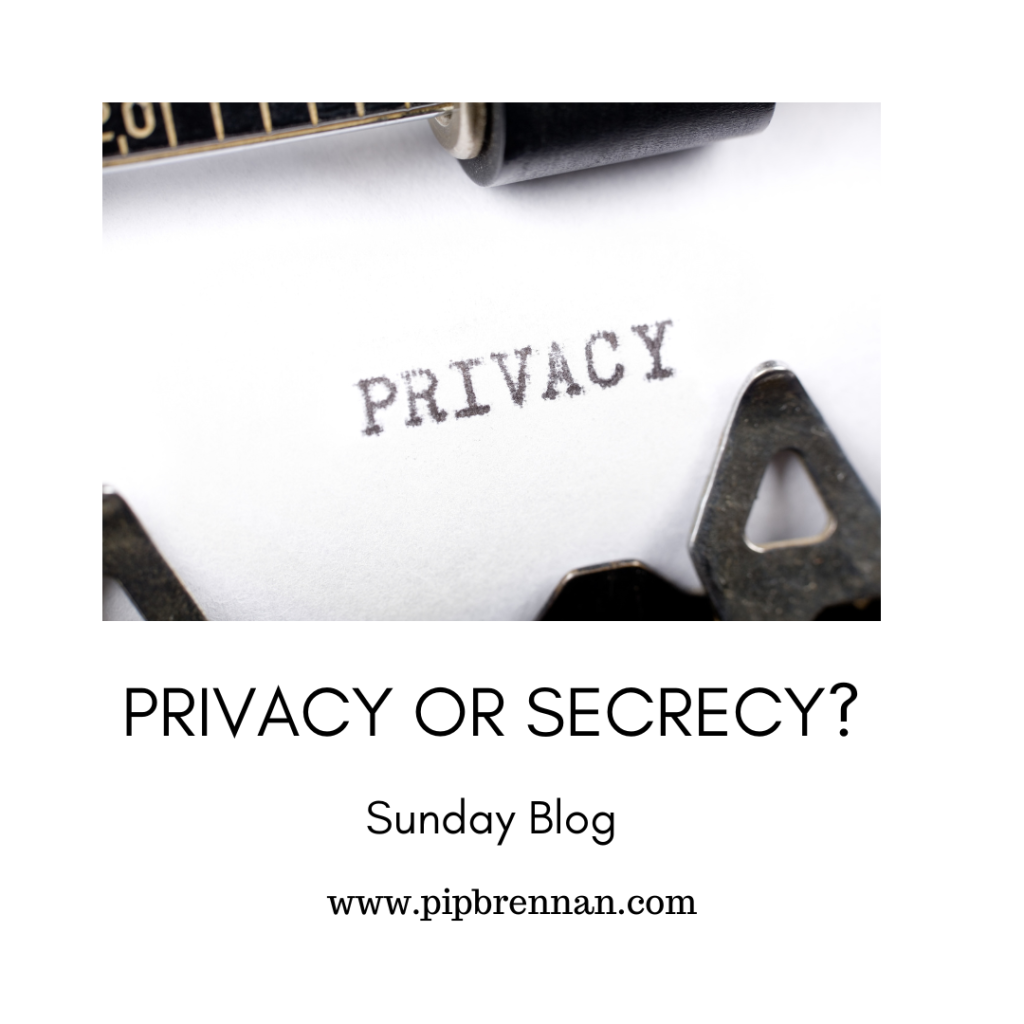Sunday Blog 94 – 23rd July 2023

This week I had the chance to give a talk about privacy from a consumer perspective, specifically about our state’s Privacy and Responsible Sharing Information Project and the forthcoming legislation. This legislation is yet to be revealed, much to my chagrin. I had a fantasy that drafting this important legislation would be more of a consultative process with the West Australian community (ha ha ha ha! No wonder they call me Pollyanna…)
Privacy is a dry topic, I know, and I attempted to spice it up by trying to argue that privacy is not the absolute, only thing that citizens care about. We care about openness too, and honesty. Heaven forbid, we might sometimes think that governments citing “privacy concerns” are just covering their own butts.
Case in point. I debriefed the episode of Australian Story where Corey White, author of the wonderfully titled (and written) memoir The Prettiest Horse in the Glue Factory went on Australian Story. He and his sister used a national television program to further unpack their experiences in Australia’s out of home care system. Queensland’s Child Protection Department had this to say the next day after the episode aired:
The Act prevents us from discussing individual cases…
But Corey and his sister had swapped out their privacy to attempt to create change. What I would have loved to have seen was something like this; “Our whole team watched the Australian Story and spent time reflecting on what has changed, and what is the same since Corey’s childhood. We thank Corey and his sister for their bravery in telling their stories. We heard them. We have re-committed to implementing Recommendations from previous Inquiries and to advocate to Treasury to provide the funds we need to keep children safe.”
I know. I was really riffing.
For people who are desperate to access a service, or to create positive change to help make meaning out of the suffering they have endured, privacy may not be the most important thing.
I also reinforced the radical notion that data about us, should be owned by us everyday citizens. Not government agencies playing God as Data Custodians, arguing the toss about who has the most power while data that is not shared or linked (especially health data) can mean actual lost lives.
And our data should not, heaven help us, be owned outright by companies. We know that data is the new oil, and how it is extracted, refined, repackaged and on-sold is where the money and power is at. The biggest companies in the world now are trading data, our data.
We also take part in the playacting of accepting privacy policies that are thousands of unread words long every day. That is the cost we pay in order to be able to access an app, a service. Our only other choice is to say no and be barred.
So yes, privacy is complex and important. Companies in particular need to be collecting less data about us and destroying that data once it has done its job. Letting us know when they have sold our data on (aren’t we are all familiar with that rash of dodgy texts received a day or two after clicking “accept” on privacy terms on some website somewhere?)
Government agencies need to use the data they are custodians of to follow the trail and work out what services and programs are working. We the people need to be part of the ongoing digital revolution, able to participate meaningfully in discussions about what data is collected, how algorithms are put together, how they are assessed as effective over time.
Or as this interesting Washington Post article says:
We the users want transparency, so we can understand how technology is shaping our lives — and correct course when it goes off the rails.
https://www.washingtonpost.com/technology/2022/05/12/we-the-users/
I have joined the revolution by reading The Digital Mindset. I think I can boast a wobbly fluency in the key concepts and feel more empowered now – it’s definitely worth a read.
We need to be part of the conversation of what data is collected – “what is counted ends up counting” as the book tells us. As a patient advocate I know how essential it is for us to be at the table ensuring that the data patients and carers think is important is also counted, not just what the surgeon thinks is important.
Viva la digital revolution.
